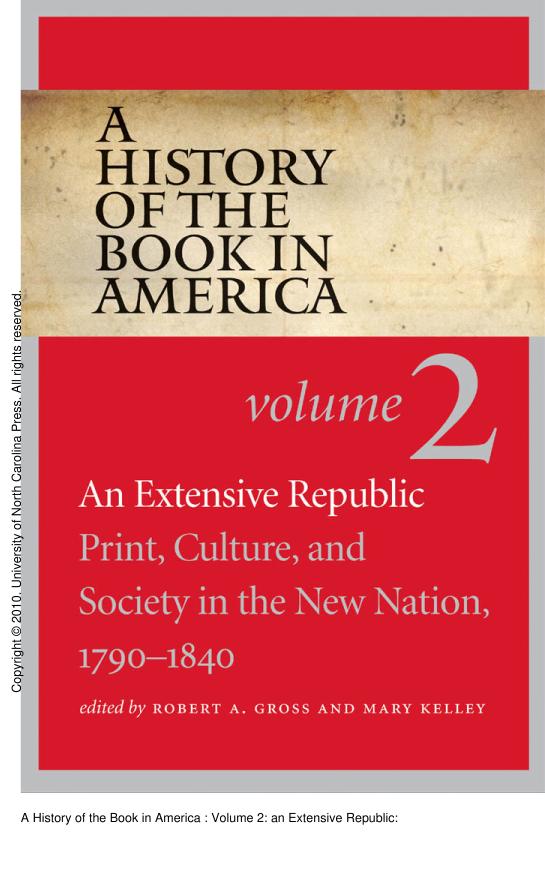Product desciption
A History Of The Book In America Volume 2 An Extensive Republic Print Culture And Society In The New Nation 17901840 1st Edition Robert A Gross Mary Kelley by Robert A. Gross; Mary Kelley 9781469627199, 1469627191 instant download after payment.
Volume Two of A History of the Book in America documents the development of a distinctive culture of print in the new American republic. Between 1790 and 1840 printing and publishing expanded, and literate publics provided a ready market for novels, almanacs, newspapers, tracts, and periodicals. Government, business, and reform drove the dissemination of print. Through laws and subsidies, state and federal authorities promoted an informed citizenry. Entrepreneurs responded to rising demand by investing in new technologies and altering the conduct of publishing. Voluntary societies launched libraries, lyceums, and schools, and relied on print to spread religion, redeem morals, and advance benevolent goals. Out of all this ferment emerged new and diverse communities of citizens linked together in a decentralized print culture where citizenship meant literacy and print meant power. Yet in a diverse and far-flung nation, regional differences persisted, and older forms of oral and handwritten communication offered alternatives to print. The early republic was a world of mixed media. Contributors: Elizabeth Barnes, College of William and Mary Georgia B. Barnhill, American Antiquarian Society John L. Brooke, The Ohio State University Dona Brown, University of Vermont Richard D. Brown, University of Connecticut Kenneth E. Carpenter, Harvard University Libraries Scott E. Casper, University of Nevada, Reno Mary Kupiec Cayton, Miami University Joanne Dobson, Brewster, New York James N. Green, Library Company of Philadelphia Dean Grodzins, Massachusetts Historical Society Robert A. Gross, University of Connecticut Grey Gundaker, College of William and Mary Leon Jackson, University of South Carolina Richard R. John, Columbia University Mary Kelley, University of Michigan Jack Larkin, Clark University David Leverenz, University of Florida Meredith L. McGill, Rutgers University Charles Monaghan, Charlottesville, Virginia E. Jennifer Monaghan, Brooklyn College of The City University of New York Gerald F. Moran, University of Michigan-Dearborn Karen Nipps, Harvard University David Paul Nord, Indiana University Barry O'Connell, Amherst College Jeffrey L. Pasley, University of Missouri-Columbia William S. Pretzer, Central Michigan University A. Gregg Roeber, Pennsylvania State University David S. Shields, University of South Carolina Andie Tucher, Columbia University Maris A. Vinovskis, University of Michigan Sandra A. Zagarell, Oberlin College


